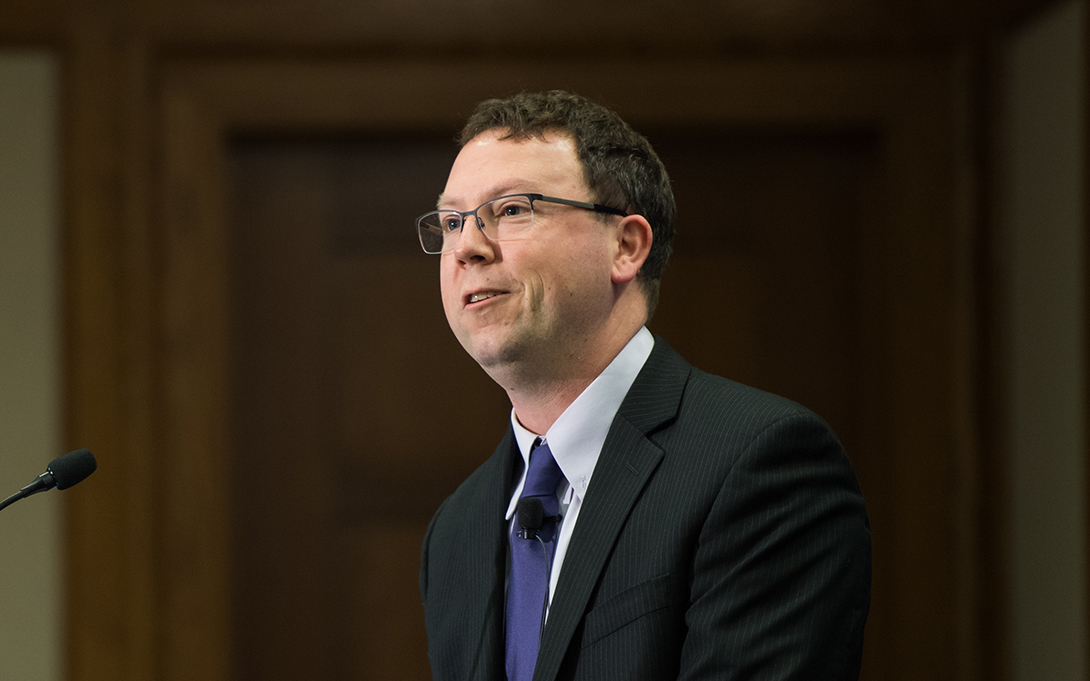
From 2013-2016, Daniel Raimi traveled to every major oil and gas producing region of the United States to investigate the local impacts of hydraulic fracturing, or fracking.
The stories he gathered from those trips were the beginnings of Raimi’s first book, The Fracking Debate: The Risks, Benefits, and Uncertainties of the Shale Revolution, which was published by Columbia University Press last month.
In The Fracking Debate, Raimi addresses the most commonly asked questions related to fracking, laying out the mechanics, economic impacts, and environmental and health risks of the “shale revolution.” Combining detailed information with the stories he collected from across the U.S., Raimi creates “a deft, fair analysis that clarifies the issues for both the general public and concerned policymakers,” according to Kirkus Reviews.
“His book manages to be both in depth and comprehensive, but at the same time readable and accessible,” said Catherine Hausman, introducting Raimi at the January 24 The Fracking Debate Book Talk event at the Ford School.
Ultimately, The Fracking Debate shows that there are few easy answers when it comes to fracking.
“The realities are complex,” Raimi noted at the book talk. “The issues are not going to go away any time soon. And governments, companies, and citizens need good information to make decisions. What this book does . . . is provide some of that information that I hope can help improve decisions, as well as to improve your understanding, and the public’s understanding, of this extremely important topic.”
